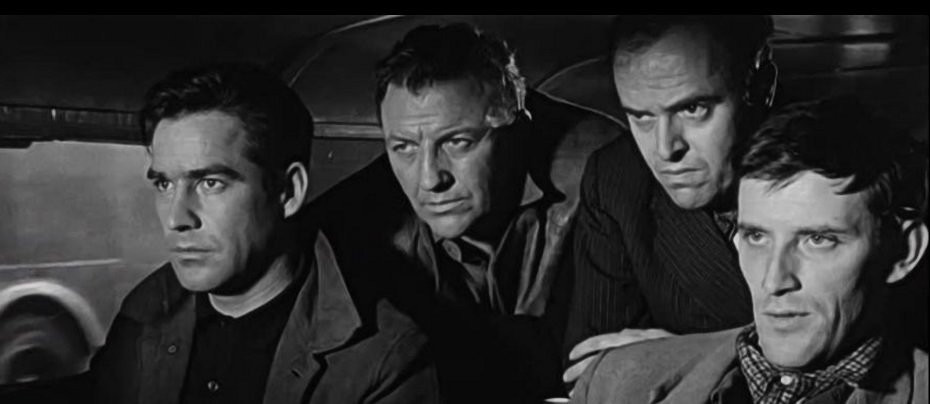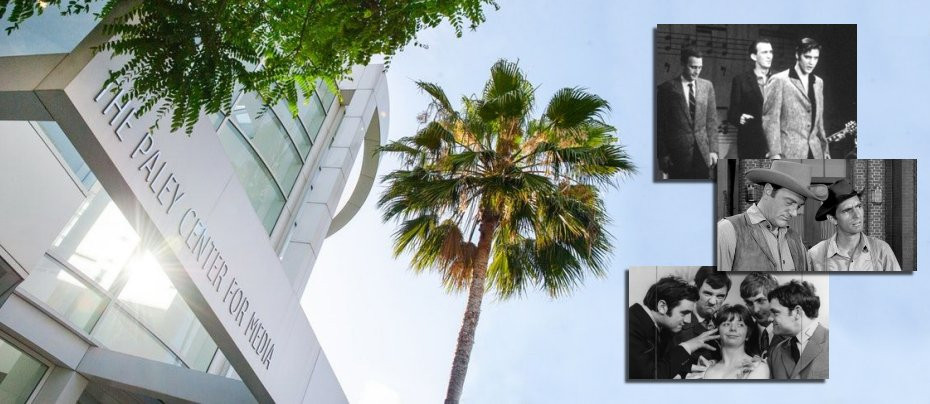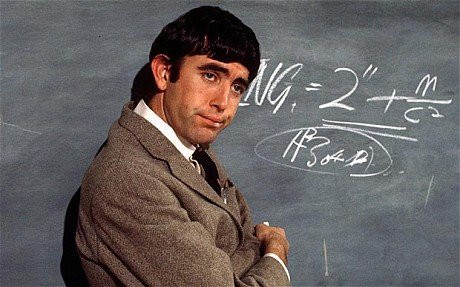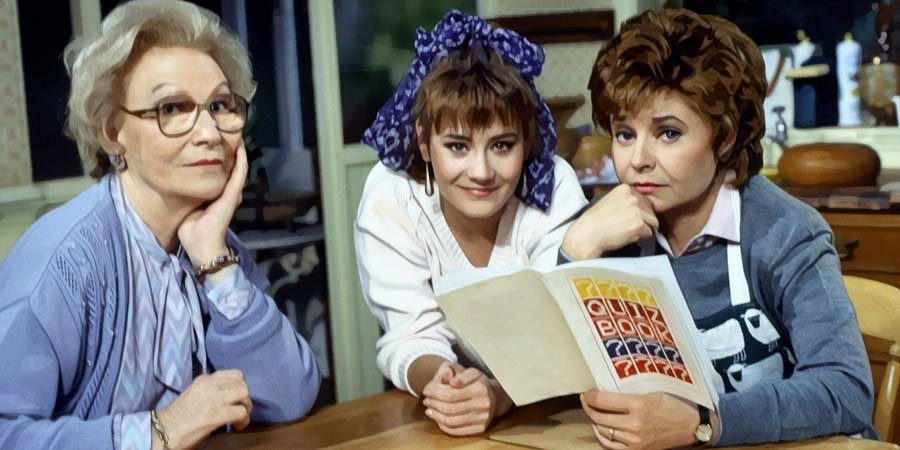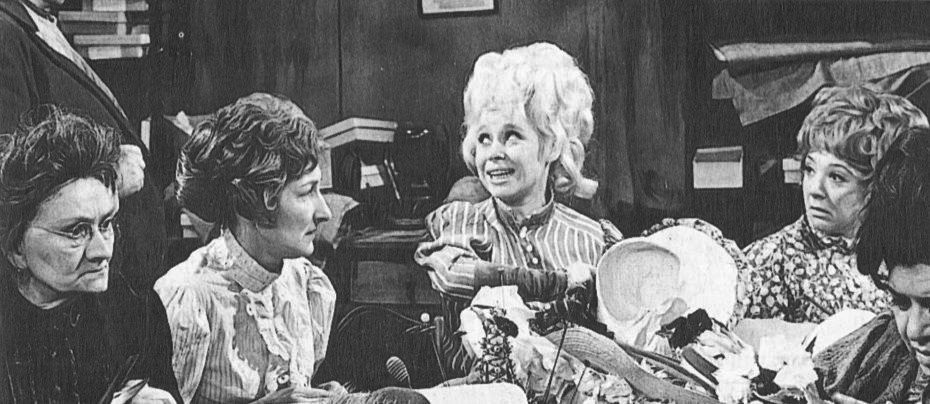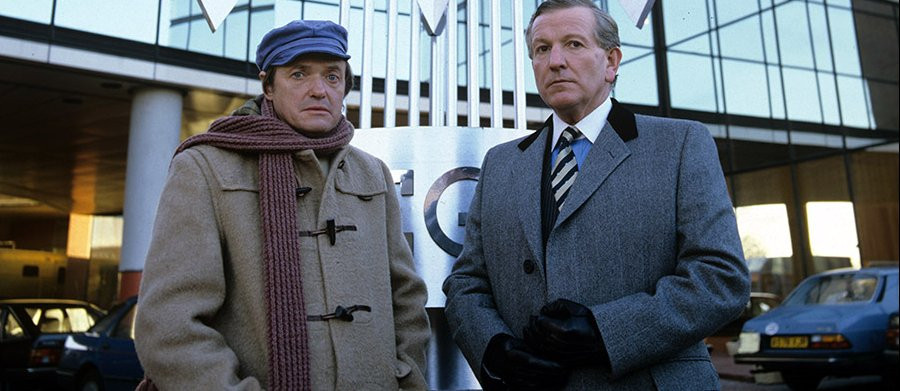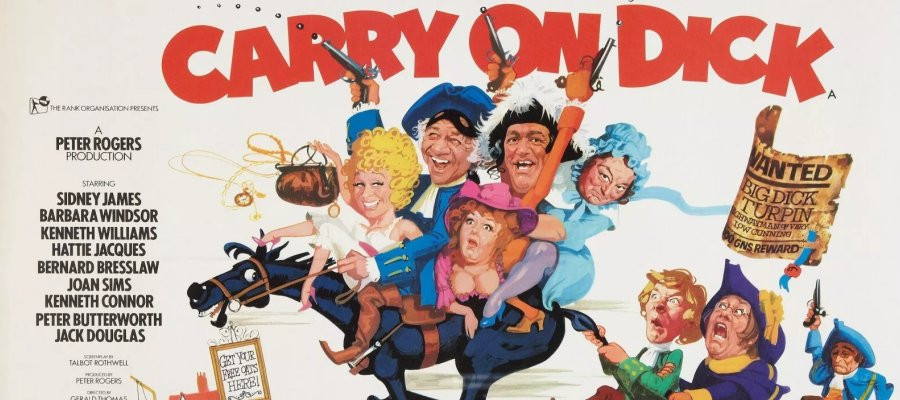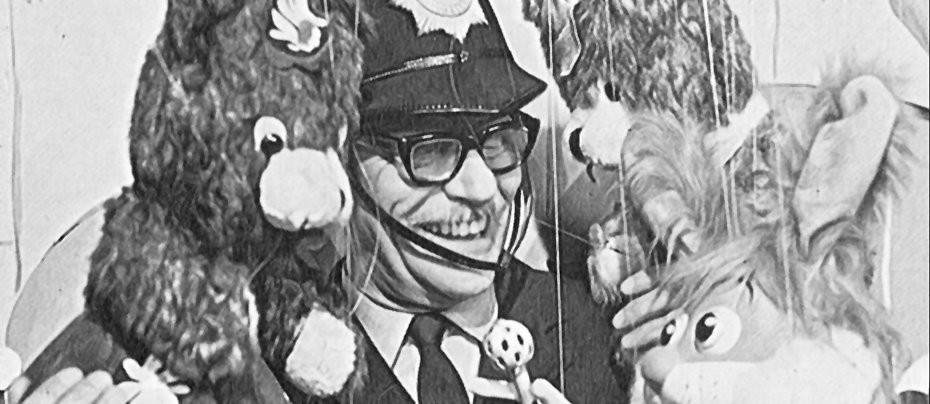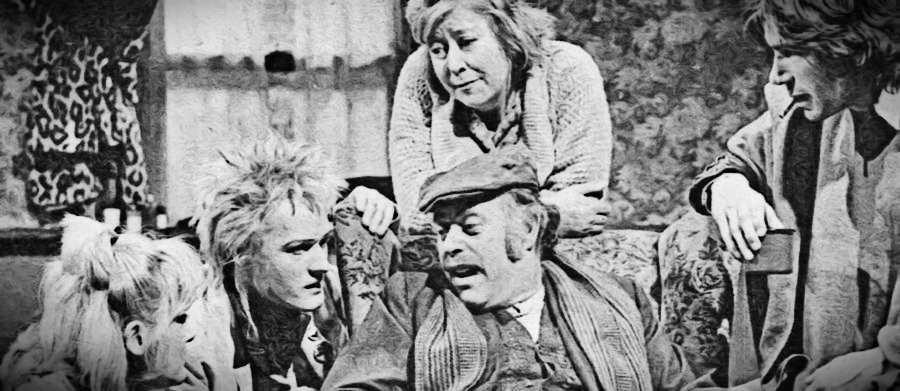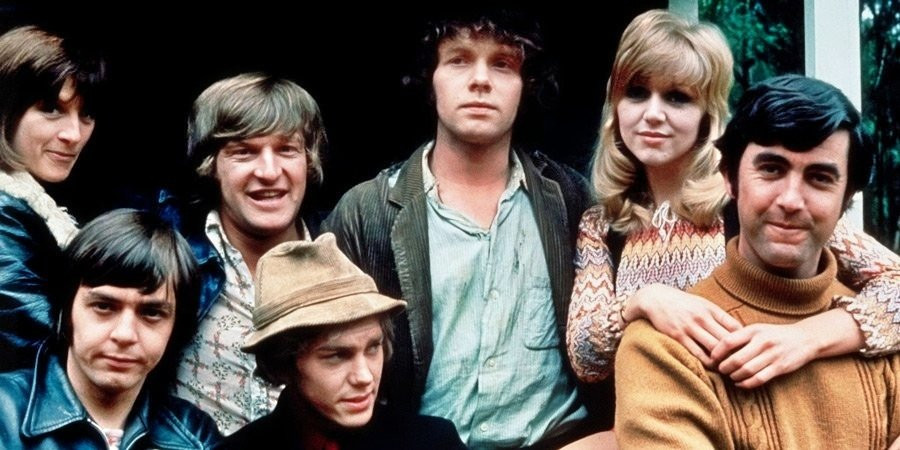
Please Sir! Film (1971)
'Unusually, the cast of Please Sir! was largely left untouched from the television series.'
After three successful sitcom series, the pupils of 5C at Fenn Street Secondary School were almost ready to move on…but not before, like many commercial sitcoms of the 1970s, they were given the big screen treatment in the 1971 movie Please Sir!
Bernard Hedges (John Alderton) – known as Privet to his pupils - has been doing his level best to show faith in his class of unruly misfits, always believing that they can be better people than their mischievous antics suggest. For 34 episodes on television, he has largely been proven wrong, and his willpower is put firmly to the test in the movie version as his class head off to a summer camp and cause chaos from first moment to last.
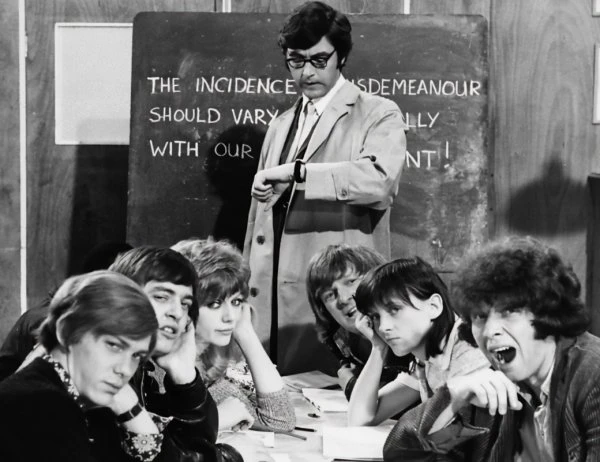
Mr Hedges thinks young minds are ready to find an outlet to express themselves. However, in assembly during the film’s opening there is little evidence to support that. Form 5C can be seen singing badly, wetting the floor, making out and blowing large bubble-gum bubbles rather than listening to the headmaster’s announcements. One missive they do hear is the news that the school are set to send some pupils on, ‘two wizard weeks to a rural centre.’ The news is greeted with chants of what a load of rubbish from members of 5C.
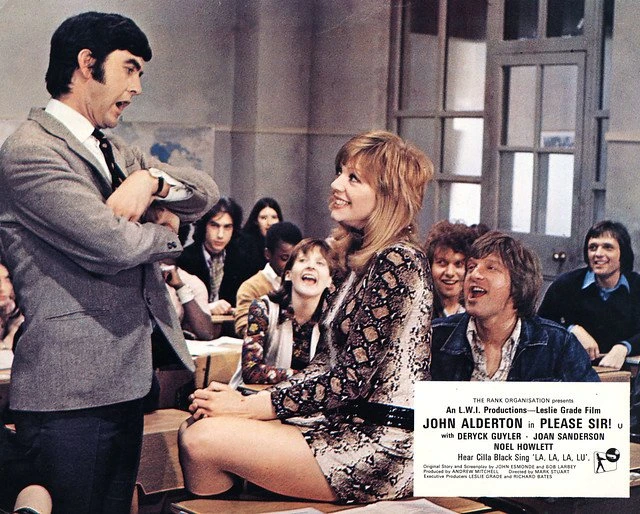
When back in classroom, Hedges bemoans their behaviour, but the class inform him that they haven’t ever been given the opportunity to attend, hence their hostility. The two weeks will, after all, be a period when the pupils are representing the school alongside others in the area. 5C would hardly seem worthy of flying the school flag without damaging its reputation. After an impassioned speech to the authorities on behalf of his students, Hedges is told that the students don’t get a chance because it’s too much trouble for the teachers that are going with them…but with Hedges now onboard, they are finally granted approval.

It’s at this point we see the backgrounds that the students come from as they seek parental authorisation for the trip. There are no issues for self-appointed class leader Duffy (Peter Cleall), who largely does as he pleases. The biggest challenge is for Dennis Dunstable (Peter Denyer), whose illiterate father is violent and abusive. Dennis is doomed not to join his classmates until his pals forge his father’s signature by duping hapless caretaker Norman Potter (Deryck Guyler) into signing the authorisation form as Mr Dunstable.

With all forms returned, Hedges and the rest of the staff are prepared for the trip – although Hedges himself has his own challenge, fending off the advances of colleague Angela Cutforth (Patsy Rowlands), one of the few extra characters in the movie version.
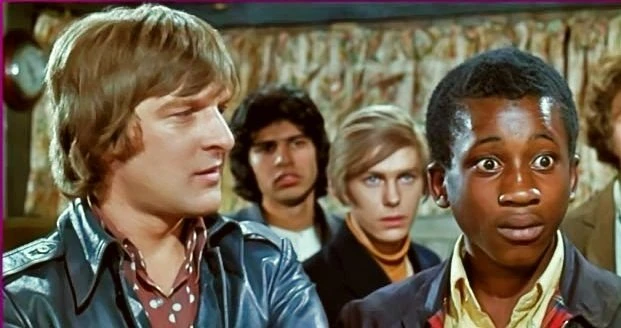
It’s during the journey that we really see the age of the movie come to notice. As uncomfortable as the scenes of the Dunstable’s home life was, when the only black student, Wesley, comes into the storyline, the jokes become less palatable more than fifty years after its release. Wesley (Brinsley Forde, future founder of reggae group Aswad) is protected by his classmates, but it’s perhaps this that makes the jokes more awkward to hear. Instead of seeing an Alf Garnett getting his comeuppance for racist language and stereotyping, here we see how life genuinely was for children of colour.
Once in camp, the inevitable happens. The class sneak out to have some drinks in the local pub, where they are rumbled by Hedges and more hardened colleague Mr Price (Richard Davies). The kids are sent back to camp with a flea in their ear, but it’s just the start of their disruptive time. Price has of course seen it all before…in his eyes, and indeed those of most of the other teachers, the C in 5C seems to stand for catastrophe.

As the other schools appear in the picture, Fenn Street fails to register on the star marks board where the schools compete. When out walking, they stumble across the upper class members of Boulters School, destroying their easels when they are painting the forest. It starts an ongoing feud between the schools that includes a food fight in the common room. As Hedges nears losing his faith, Price mocks his colleague, claiming that, ‘you’re no fun when you give in like the rest of us.’

When 5C realise that the only reason they are allowed to be present on camp is because Hedges stuck his neck out, they try to improve their behaviour…or at least be seen to do so. They pay local gypsy children to clean their quarters and all seems to be progressing well until Dennis causes havoc. Having sent a postcard back home, his father of course realises that rather than staying at a friend’s house as he had been told, his son was actually on a school trip that he hadn’t authorised. The movies wraps up with the rampaging parent attempting to remove Dennis from camp, but his own illiteracy prevents him from signing release papers, ensuring Dennis gets to stay.
Please Sir! came from the pens of John Esmonde and Bob Larbey. It was pretty much their earliest major breakthrough, with comedy successes like The Good Life and Ever Decreasing Circles yet to come. It’s safe to say that by then, their style had been honed into rather less controversial material.
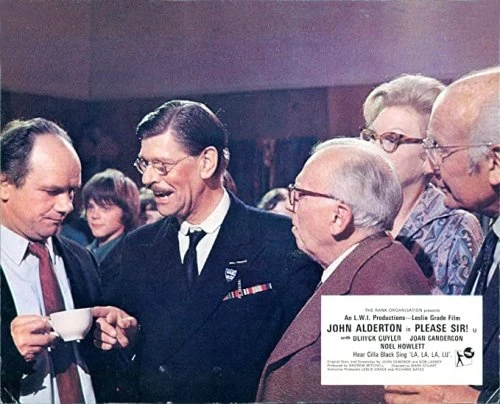
Unusually, the cast of Please Sir! was largely left untouched from the television series. The addition of Rowlands was a master stroke. One of the most underrated of the Carry On regulars, her yearning for Bernard is typical of the role she was often asked to play in the saucy movie series. She is on fine form again, cornering Hedges before the trip, lustfully telling him that out of school, ‘one strips off layers,’ and that they, ‘should be able to get down to the nitty gritty.’
Guyler is the master of the double take as he portrays Potter in a role akin to that of Groundskeeper Willie role in The Simpsons. Alderton is convincing enough as he does his best to keep his belief in the decency of his pupils, and there is fine support from the always superb Joan Sanderson as Doris Ewell, the always militantly critical moral voice of the school. It’s no wonder she fitted so well as Mrs Richards in the classic Fawlty Towers episode, Communication Problems.

Please Sir! isn’t the easiest of watches now, but certainly was a huge success at the box office when released. Its appearance is somewhat muddled with the television show’s timeline, seemingly taking place between series two and three, but not being released until the conclusion of series three, at the end of which the students left the school.
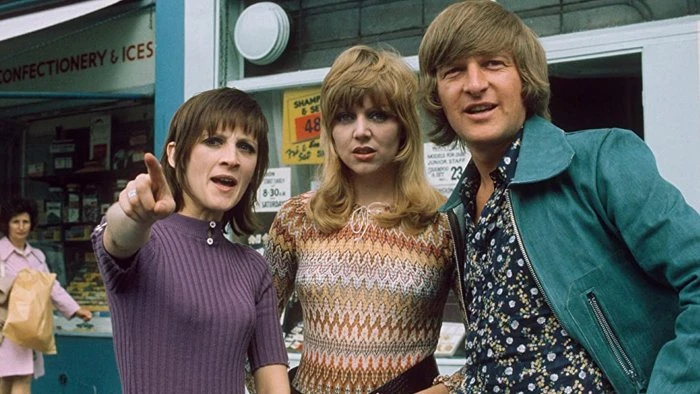
The student actors are of course all way too old for the characters they play, none even seeming like school attending age, but they are believable in their role. Most would be spun off into the Fenn Street Gang as the television version of Please Sir! welcomed a set of new pupils for its fourth and final series. With a further related series, Bowler, in 1973, there’s no questioning that Please Sir! was a huge success on many fronts, even if it has dated more than some of the other releases of its time.
Review by Brian Slade:
Born and raised in Dorset, Brian Slade turned his back on a twenty-five-year career in IT in order to satisfy his writing passions. After success with magazine articles and smaller biographical pieces, he published his first full-length work, `Simon Cadell: The Authorised Biography'.
Brian is a devoted fan of the comedy stars of yesteryear, citing Eric Morecambe, Ken Dodd, Harpo Marx and Dudley Moore amongst his personal favourites. He was drawn to the story of Simon Cadell through not only `Hi-de-hi!' but also `Life Without George', a programme he identified with having grown up in the Thatcher era.
Published on January 31st, 2022. Written by Brian Slade for Television Heaven.


